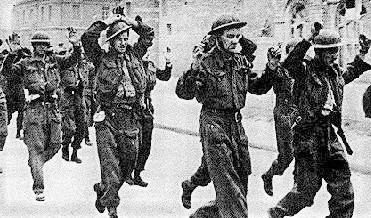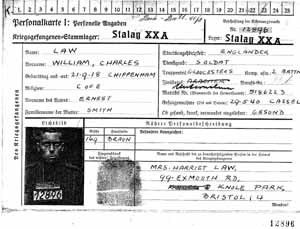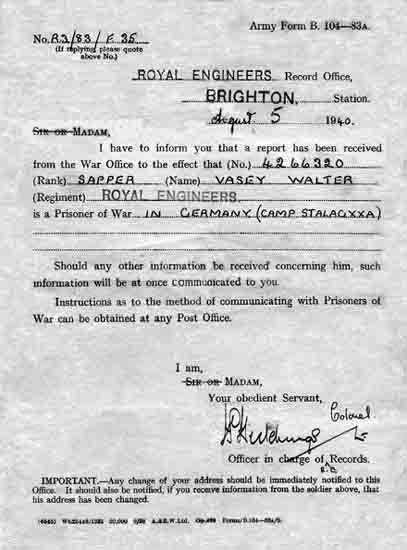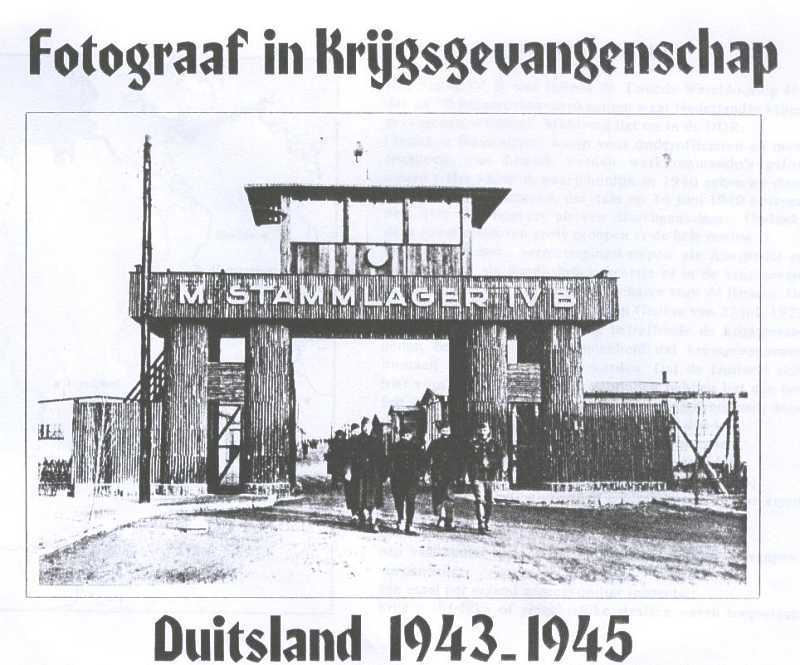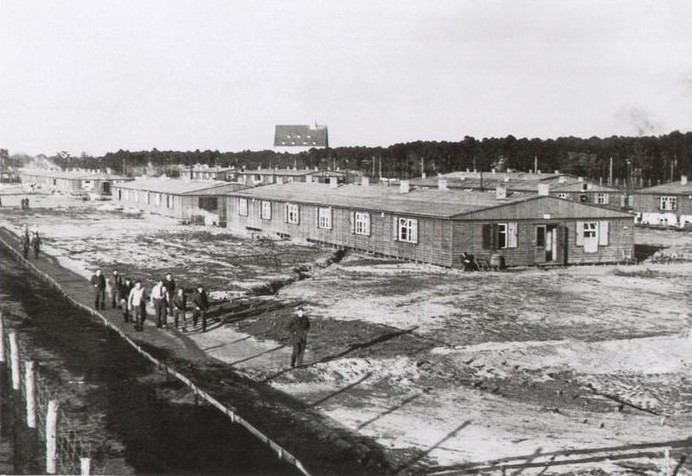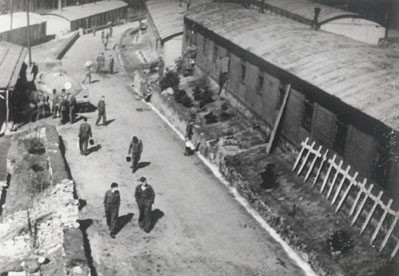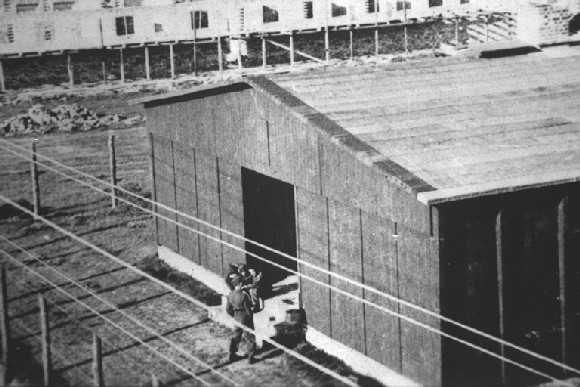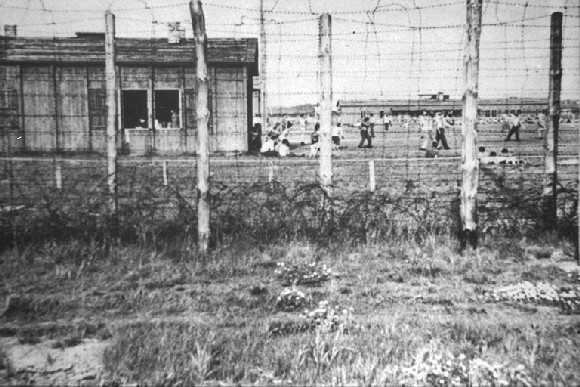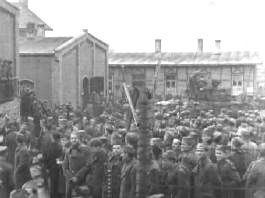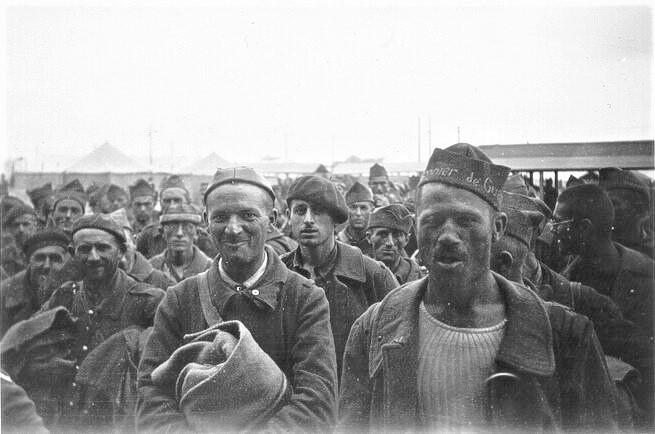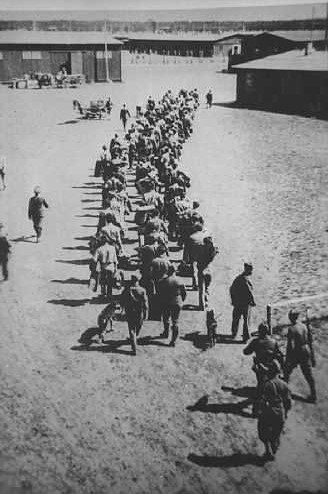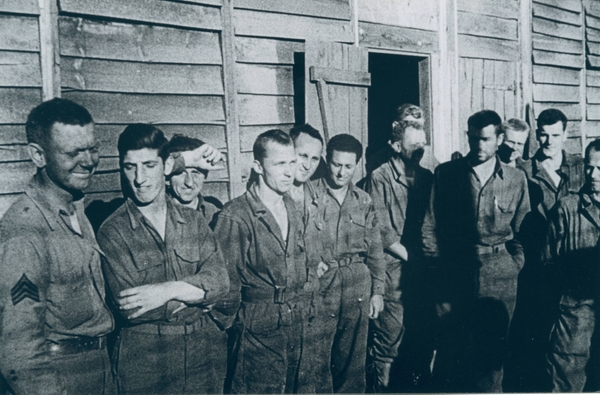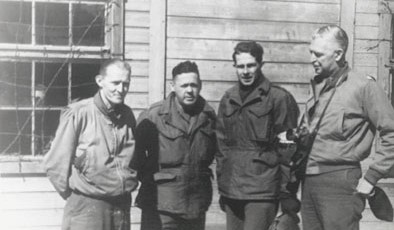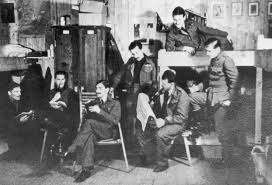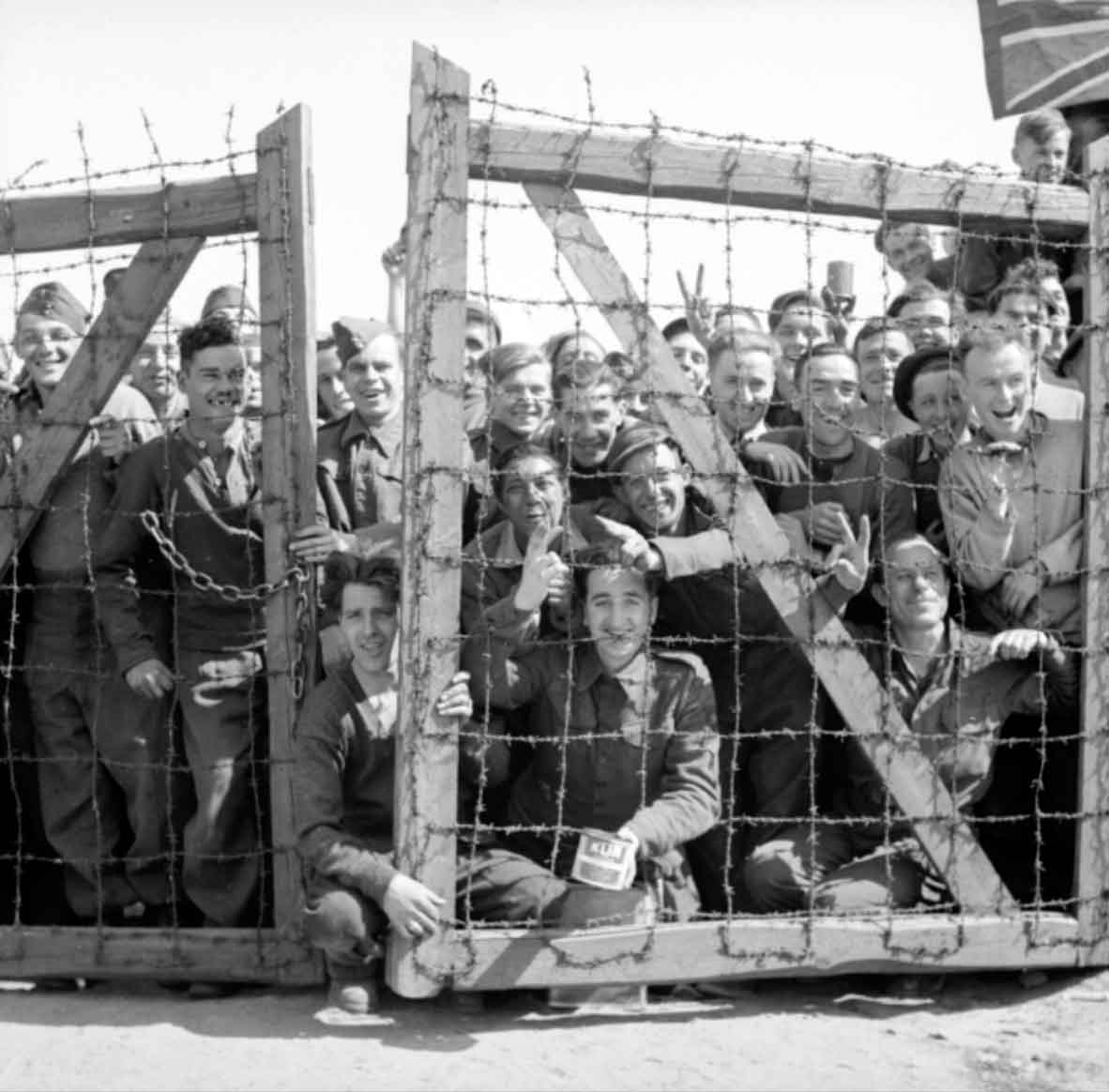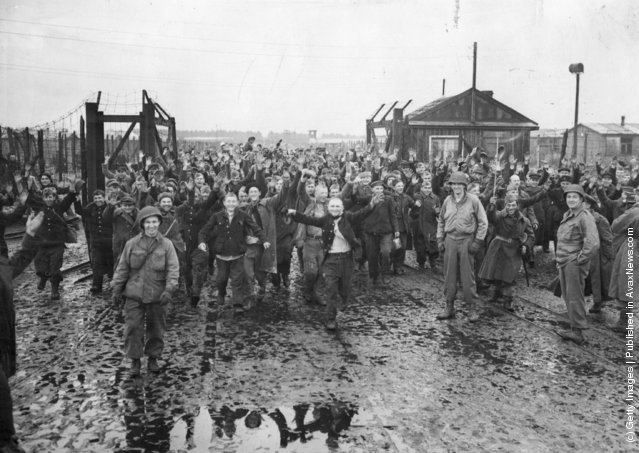You are now a Prisoner of War of the German Reich:
Before being sent to a camp, a captured prisoner of war had to pass through a transit camp where details of the prisoners were processed and they were interrogated. Prisoners would then be transported to a prisoner of war camp. The usual form of transport was by train and the length of the journey depended on both the distance to travel and the number of times the train would be shunted into a siding to make way for a passing troop train. "Oflags" were German prison camps for officers while "Stalags" were for both officers and enlisted men. Captured soldiers from the western Allies were sent to one of a series of "Stalags" or prison camps across Germany. Every camp was surrounded by a tall barbed wire fence with guard towers manned by German soldiers ready to shoot anyone trying to escape.
Prisoners were usually housed in one-storey wooden barracks which contained bunk beds and simple coal or wood burning stove in the middle of the room. Prisoners were generally given two meals a day - thin soup and black bread. Hunger was a feature of most prisoners' lives. Prisoners looked forward to Red Cross food parcels which might contained 'luxury' items such as butter, biscuits, dried fruits and vegetables, chocolate and condensed milk. In every camp prisoners were required go on parade at least once daily for a roll-call. Some men would be put to work either around the camp or in local area. Prisoners often played sports - such as soccer - and put on concerts or plays in the evenings. For most POWs the overriding features of life in a prisoner of war camp were boredom, hunger and dreams of liberation.
While conditions in these camps were extremely brutal, they were not as horrible as the slave labour camps for Jews, Poles, or Russians. Allied prisoners were sometimes used as forced labour; the guards could be brutal; and food and winter heating were at a minimum, but the Germans were not trying to deliberately work western Allied prisoners to death. Some Allied prisoners who tried to escape were killed and after the notorious "Great Escape" the Nazis killed all of the escapees they recaptured. Most Western Allied prisoners of war however, survived their time in the camps. The Russians liberated the Eastern Camps beginning in early 1945. Most of the Western camps were liberated in April, 1945 in the final weeks of the war.
